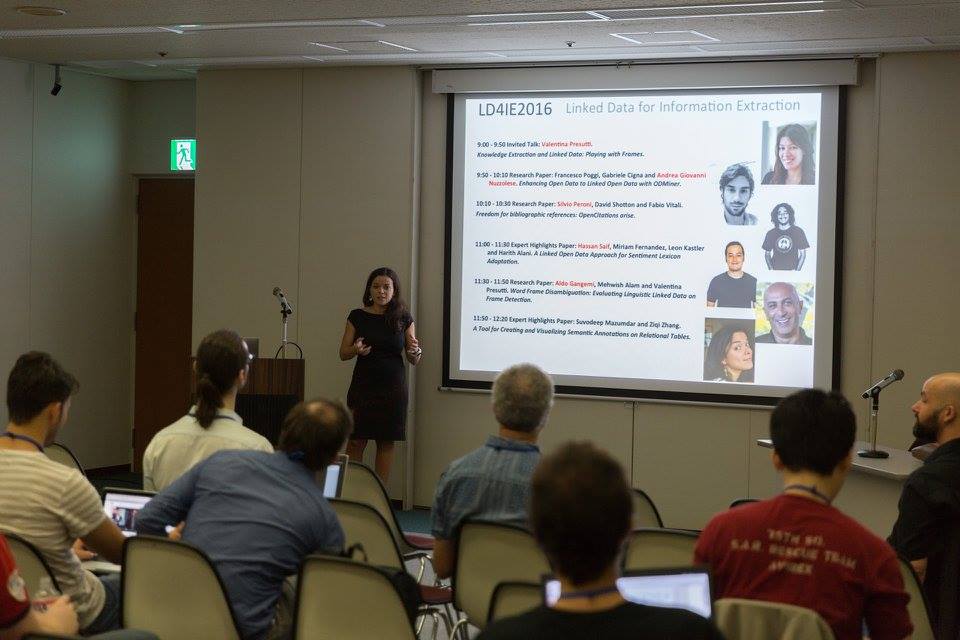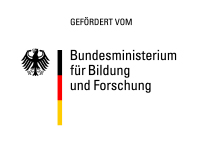The LD4IE - Linked Data for Information Extraction workshop was held on October 18th, 2016 in Kobe, Japan, in conjunction with the 15th International Semantic Web Conference (ISWC2016). It was the fourth edition of the workshop and was co-organised by DS4DM researcher Anna Lisa Gentile from the University of Mannheim. The workshop is of particular interest for the DS4DM project as it explores topics and challenges related to the project.
 Dr. Anna Lisa Gentile (Researcher, University of Mannheim) at the 4th LD4IE workshop at the 15th International Semantic Web Conference (ISWC2016) in Kobe, Japan
Dr. Anna Lisa Gentile (Researcher, University of Mannheim) at the 4th LD4IE workshop at the 15th International Semantic Web Conference (ISWC2016) in Kobe, Japan
The workshop featured 3 full papers, one position paper and two so called "Expert highlights" papers. The "Expert highlights", a novelty that was introduced to the workshop series this year, are papers by researchers with established track record on specific and critical topics in the field of Information Extraction. Specifically, Saif et al. address the topic of extracting and analysing sentiment from social media contents, while Mazumdar and Zhang report novel findings about visualization techniques for Information Extraction, specifically dealing with extraction from Web tables.
The invited speaker for LD4IE 2016 was Dr. Valentina Presutti, a researcher and team coordinator at the Semantic Technology Laboratory of the National Research Council (CNR) in Rome and Catania. She has more than ten years of experience in managing research and development projects in domains such as open data, data integration, knowledge extraction, content and knowledge management, natural language understanding, Information and Communications Technologies for eHealth. Her talk at LD4IE 2016 was titled "Knowledge Extraction and Linked Data: Playing with Frames" and explored the topics of automatically understanding text (or speech) by identifying the main entities in the discourse and how they relate to each other within relation schemas called frames. She explored the three main ingredients to achieve this automatic text understanding: knowledge extraction, knowledge representation and automated reasoning.

